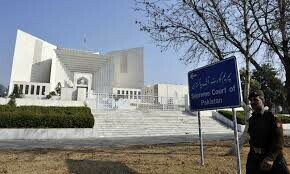ISLAMABAD: International rights organisations, including Human Rights Watch, on Monday urged Pakistan’s parliament to reject a proposed cybercrime bill which they alleged threatened freedom of expression and privacy.
The Prevention of Electronic Crimes Act 2015 contains provisions that allow the government to censor content and criminalise net activity under what critics have described as overly broad criteria.
The bill also permits government authorities access to the data of internet users without any form of judicial review process, according to the statement which was co-signed by non-governmental organisations Privacy International, Digital Rights Foundation, Article 19, and others.
“The Prevention of Electronic Crimes Act bill neither protects the public from legitimate online security concerns nor respects fundamental human rights,” said Phelim Kine, HRW’s Asia division director.
“In its present form, Pakistan’s cybercrime prevention bill will instead institutionalise unacceptable violations of basic rights with a thin veneer of legality.”
The rights groups also expressed concern over a provision that allows the government to share intelligence with foreign spy agencies, such as the United States’ National Security Agency, and the mandating of service providers to retain telephone and email records for up to a year.
One section authorises the blocking of content if the government considers it “necessary in the interest of the glory of Islam or the integrity, security or defence of Pakistan or any part thereof, friendly relations with foreign states, public order, decency or morality”.
Another section, entitled “spoofing”, appears to criminalise satire with a three-year jail sentence.
Gul Bukhari, a Pakistani digital rights activist, said the wording of the bill in its present form was too vague.
“What is against the glory of Islam, what is against relations with foreign countries, what is obscene, what is immoral? It is all up to a designated agency, not a court,” she said. “This literally gives the government a free hand to be able to censor anything as it wants to.”
She added the bill potentially criminalised the use of virtual private networks (VPNs) which many people used to circumvent a ban on YouTube that has been in place since 2012, as well as any form of encryption software.
Article 9 of the bill criminalises anyone who “prepares or disseminates” any type of electronic communication with the intent to praise a person simply “accused of a crime,” or to “advance religious, ethnic or sectarian hatred”.
The National Assembly’s Standing Committee on Information Technology and Telecommunication approved the bill on April 16 and it now awaits consideration by the National Assembly and the Senate.
Minister of State for Information Technology Anusha Rehman Khan has defended the bill as a means to prevent cybercrime, defend national security, and boost and protect information technology, e-commerce, and e-payments systems.
Free speech campaigners in the country have long complained of creeping censorship in the name of protecting religion or preventing obscenity.
In November 2011, the telecommunications authority tried to ban nearly 1,700 “obscene” words from text messages, which included innocuous terms such as `lotion’,`athlete’s foot’ and `idiot’.
In 2010, Pakistan shut down Facebook for nearly two weeks over its hosting of allegedly blasphemous pages. It continues to restrict thousands of online links.
Published in Dawn, April 21st, 2015
On a mobile phone? Get the Dawn Mobile App: Apple Store | Google Play
















































Dear visitor, the comments section is undergoing an overhaul and will return soon.